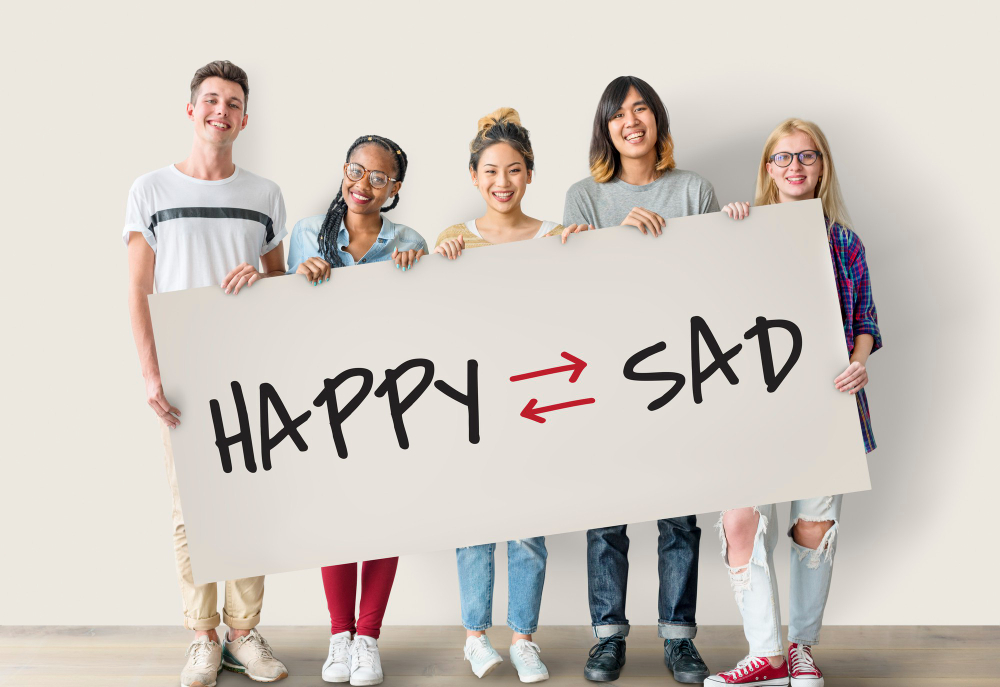Mental health and self-care for young people
It’s fair to say the past 18 months have not exactly been easy, and many of us are feeling uncertain or anxious about the future. But there’s loads of things we can all do to look after our mental wellbeing, and taking any time you can for self-care is massively important, especially now.
Knowing what steps we can take to support our mental wellbeing can help us feel better, sleep better and have better relationships with the people around us – and that goes not just for today but for the future too.
Check out our videos for all sorts of tips on exercise, sleep and how to take care of yourself on social media.
You will also find links to help for groups of people who may be finding things particularly tough, or have additional needs, and support with some of the issues you may be facing.
Get support
If you’re struggling with your mental health, or you’re worried about one of your friends, there are lots of organisations and charities that offer help specifically for young people.
Support from charities
The Mix has a free, confidential telephone helpline and online service that aims to find you the best help, whatever the problem.
Shout 85258 provides free, confidential, 24/7 text message support in the UK for anyone struggling to cope. They can help with issues including suicidal thoughts, depression, anxiety, panic attacks, abuse, self-harm, relationship problems and bullying. Text “Shout” to 85258 to speak to an empathetic, trained volunteer who will listen and work with you to solve problems.
If you’re under 19, you can also call 0800 1111 to talk to Childline. The number will not appear on your phone bill
Support from the NHS
You can find more information about NHS children and young people’s mental health services (CYPMHS) on the NHS website. You can also look at your local Clinical Commissioning Group website.
Alternatively, most services also have their own website with information about access, referrals (including whether you can “self-refer”) and contact details – try searching in your area for “CYPMHS” or “CAMHS” (children and adolescent mental health services, an older term used for some CYPMHS).
You can also talk to an adult you trust – for example a parent, carer, teacher, social worker or GP – and they can look into this for you.
Struggling with student life
On top of all the usual thoughts, feelings and worries that are part and parcel of student life, the changes brought about because of COVID-19 – and the possibilities of a lack of face-to-face learning and needing to self-isolate due to outbreaks at uni – mean there’s lots going on right now that might be tough to deal with.
It’s a totally natural reaction to a difficult situation, and there’s plenty of help available if you think you or someone you know needs it.
Find out more about student life during COVID-19 and where to get support:
- Student Space
- The Mix: Returning to university or college after lockdown
- Young Minds: Looking after yourself at uni
Help for problems during coronavirus (COVID-19)
Some of us have faced really hard times recently. It can feel like no one can help, but there are lots of organisations out there to support you through:
- bereavement and grief
- dealing with family conflict
- being abused
- money worries
- dealing with disappointing exam results
- loneliness
Barnardo’s has also set up the See, Hear, Respond support hub – a dedicated service to help children, young people and their families or carers with problems caused by the COVID-19 outbreak.
Support for different groups
There are lots of organisations and networks who provide advice and support for specific groups. It can help to connect with other young people and supporters who understand where you are coming from:
- The Proud Trust – if you identify as LGBTQ+
- Make Our Rights Reality – your mental health as a young black person
- Barnardo’s – young carers and help if you are facing homelessness
- Council for Disabled Children – living with a long-term health condition
- Beat – living with an eating disorder
- Become – children in care or being looked after
If you have learning disabilities or you are autistic, this may have been an especially difficult time for you. Here are some resources that might be useful:
- National Autistic Society and Autistica both provide support and information, including an Autism Helpline
- Ambitious About Autism has information about what to expect back at school or college
- Learning Disability England has some tips on looking after your mental wellbeing
- GOV.UK has produced an easy-read guide to looking after your feelings and your body
- Mencap has lots of help and advice – you can also contact its Learning Disability Helpline
- you can watch “A safe return to learning – SEND” for advice on going back to school
Source
https://www.nhs.uk/every-mind-matters/mental-wellbeing-tips/youth-mental-health/




